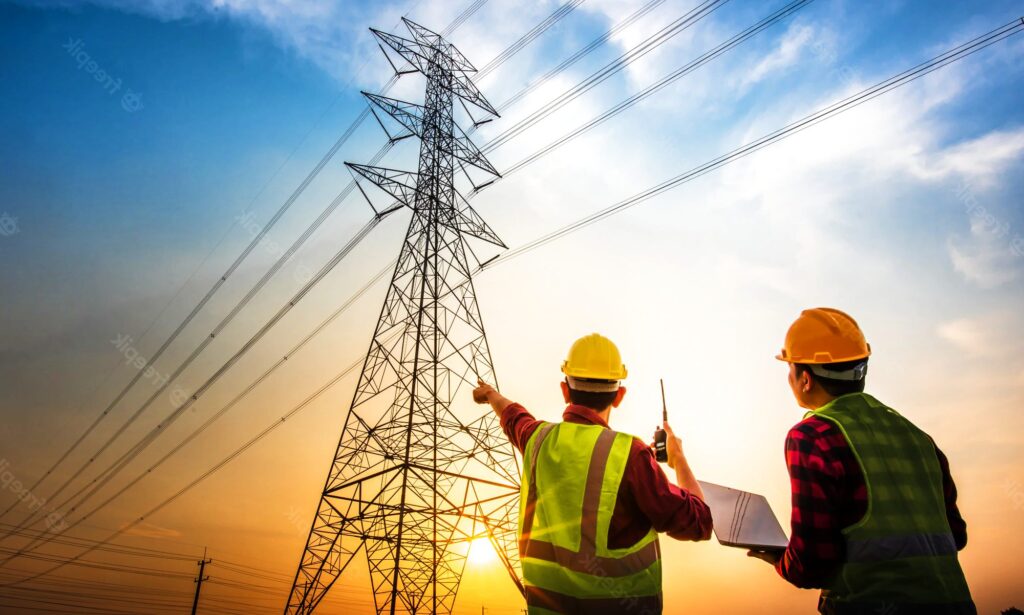The public utilities industry offers a wide range of career opportunities, from engineering and operations to customer service and management. However, determining is public utilities a good career path requires careful consideration of various factors. In this article, we will explore the pros and cons of working in the public utilities sector and provide insights to help individuals make informed decisions about pursuing a career in this field.
What are public utilities?
Before we dive into the career aspect, let’s define what public utilities are. Public utilities refer to essential services that are provided to the public, such as electricity, water, gas, and telecommunications. These services are crucial for the functioning of society, and the public utilities sector plays a vital role in ensuring that these services are accessible and reliable.
They are typically owned by the government or private companies and operate with the primary goal of serving the community. The public utility sector has many segments, including:
Water
Water utilities involve the treatment and distribution of water for residential, commercial, and industrial use. This includes managing water treatment plants, ensuring water quality and safety, maintaining water distribution systems, and responding to customer inquiries and concerns.
Electricity

Electricity utilities generate, transmit, and distribute electrical power to homes, businesses, and industries. This can involve operating power plants, maintaining electrical infrastructure, managing power distribution networks, and providing customer support for billing and service inquiries.
Gas
Gas utilities involve the distribution of natural gas to residential, commercial, and industrial consumers. This includes managing gas pipelines and distribution systems, ensuring the safe and efficient delivery of gas, responding to gas leaks or emergencies, and providing customer support for billing and service issues.
Telecommunications
Telecommunications utilities provide communication services, such as telephone, internet, and television, to the public. This can involve operating and maintaining communication networks, ensuring reliable and fast connectivity, managing customer accounts and support, and staying up-to-date with technological advancements in the industry.
Job sectors in public utilities
The public utilities industry encompasses a wide range of job sectors, providing opportunities for individuals with diverse skills and interests. Some of the key job sectors within public utilities include:
Engineering: Public utilities rely on engineers to design, build, and maintain infrastructure systems such as power plants, water treatment facilities, and communication networks. Engineers play a critical role in ensuring the efficient and reliable delivery of essential services to the public.
Operations and Maintenance: This sector focuses on the day-to-day operation and maintenance of public utility systems. Jobs in this sector may involve monitoring and optimizing system performance, conducting inspections and repairs, and ensuring compliance with safety and environmental regulations.
Customer Service: Public utilities also require individuals with strong customer service skills to interact with customers, address their inquiries and concerns, and provide support and assistance. Customer service representatives play a crucial role in maintaining positive relationships with the public and ensuring customer satisfaction.
Environmental and Sustainability: With a growing focus on sustainability and environmental impact, public utilities need professionals who can monitor and improve the eco-friendliness of their operations. This sector includes positions such as environmental scientists and sustainability coordinators.
Management and Administration: Public utilities need skilled professionals in management and administration roles to oversee operations, develop strategic plans, manage budgets, and ensure compliance with regulations. These roles require strong leadership, analytical, and decision-making skills.
Pros and cons of working in public utilities

Working in public utilities can offer a range of benefits and drawbacks. Here are some pros and cons to consider:
Pros:
- Job stability: The demand for public utilities is constant, as these services are essential for daily life. This provides a stable job market and job security for individuals working in this sector.
- Competitive salaries: Public utility jobs often offer competitive salaries, especially for positions that require specialized skills or education. So, if salary is what you are looking for, say yes to the question, is public utilities a good career path?
- Career Advancement Opportunities: There are often opportunities for career growth and advancement within public utilities, especially for those who are motivated and willing to take on additional responsibilities.
- Meaningful Work: Working in public utilities allows individuals to make a positive impact on their community by providing essential services such as clean water, reliable electricity, and efficient waste management.
- Diverse Job Opportunities: There is a wide range of job opportunities within public utilities, including roles in operations, maintenance, customer service, environmental management, and administration. This allows individuals to find a role that aligns with their skills and interests.
Cons:
- Stressful Work Environment: Public utilities can be fast-paced and demanding, especially during emergencies or times of system failure. This can lead to a high-stress work environment.
- Regulatory Challenges: Public utilities are heavily regulated, which can add complexity and bureaucracy to daily operations. Compliance with regulations and dealing with regulatory agencies can be challenging.
- Limited Innovation: Due to the nature of public utilities and the need for reliability and stability, there may be limited opportunities for innovation and experimentation in these industries.
- Physical Demands: Some roles within public utilities, such as field technicians or plant operators, can be physically demanding and require working in challenging conditions.
- Public Perception: Public utilities can sometimes face criticism from the public for issues such as rate increases or service disruptions. Dealing with public perception and managing customer relations can be challenging.
Ultimately, whether a career in public utilities is a good fit for an individual will depend on their skills, interests, and personal priorities. It is important to carefully consider the pros and cons before pursuing a career in this field.
Read Also: Best SEO Company Primelis
Final Thoughts
In conclusion, a career in public utilities can offer stability, competitive salaries, and opportunities for advancement. However, individuals considering this career path should also be aware of the regulatory challenges, potential work-life balance issues, and the need to address aging infrastructure. Ultimately, the decision to pursue a career in public utilities depends on an individual’s interests, skills, and values.
Regardless of your preferences, a job in public utilities has everything. Is public utilities a good career path? We responded definitely yes.
